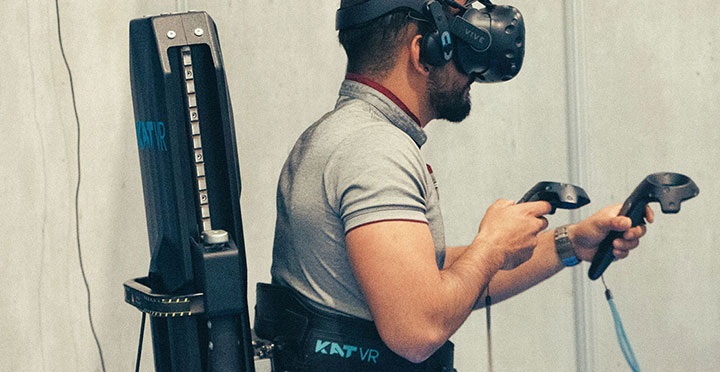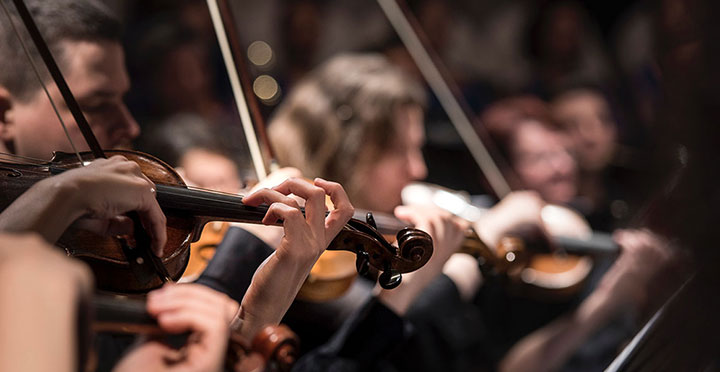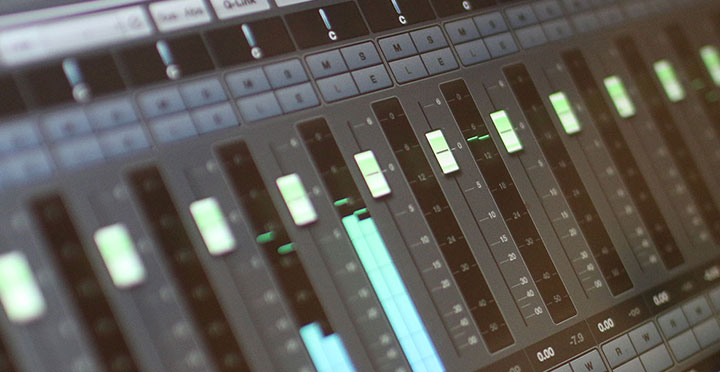TWO SUBJECT AREAS IN ONE DEGREE:
MFA MEDIA COMPOSITION & AUDIO POST-PRODUCTION
ONLINE Postgraduate Masters Degree
This degree is designed for those who want to develop two complementary skill sets – composing music and delivering professional-grade sound – to increase their value on any film or TV production and enhance their employability in industry.
You’ll learn to compose for film, television, and games using a wide range of techniques: orchestral, hybrid, electronic, and sound design-based approaches. You'll also gain hands-on experience with dialogue editing, ADR, Foley, mixing, and final delivery, working to professional briefs and deadlines throughout.
This Master of Fine Arts degree combines the curricula of our
MA Professional Media Composition and
MA Audio Post-Production degrees
A professional degree for a professional world
This degree is firmly grounded in the practical world of industry. You will be working on live briefs, real-world simulations, and industry-level projects throughout your studies.
Professional Media Composition
• Writing dramatic and emotional scores for film, TV and games
• Working to picture, deadlines, and director notes
• Developing your voice and creative workflow
• Orchestration, MIDI mockups, and hybrid scoring techniques
• Real-world portfolio building
Audio Post-Production
• Dialogue editing, ADR, Foley, SFX, and mixing
• Delivering audio to industry standards and specs
• Working with professional tools and pipelines (Pro Tools, RX, etc.)
• Mixing in stereo and surround formats
• Final delivery for film, TV, and streaming
Composition Tutors
You will be taught and mentored by professionals currently working in the industry, ensuring you receive up-to-date knowledge and expertise. Between them, our tutors work for Disney, Dreamworks, Marvel, Netflix, Universal, Warner Bros, Sky, the BBC, and many others. Below is a selection of the tutors on this course. You will learn from your tutors in live webinars, group music review sessions, personal one-to-one sessions, and through written feedback on your music. There are also regular guest lecturers from across the industry.
Guy michelmore
Composer & ThinkSpace CEO
Composed for Marvel, Disney, Lionsgate & Dreamworks
Bill Boston
Composer & Orchestrator
Cloudy With A Chance Of Meatballs
I, Robot
Arhynn Descy
Film Composer & Pianist
Member of AMPAS
Ivor Novello Award Judge
LAFCI Fellow
Fred Bux
Composer & Producer
Netflix
Disney
Paramount
Jamie Christopherson
Games Composer
Fortnite
The Lord of the Rings: Battle of Middle Earth
Emily Rice
Composer & Orchestrator
Tomb Raider
The Mummy
Star Trek: Discovery
Will Farmer
Composer & Orchestrator
BBC
Netflix
Audible
Norman Ludwin
Composer & Orchestrator
Jurassic World
Star Trek Into Darkness
Inside Out
Emer Landers
Composer & Orchestrator
Bach is Blue
Forever Hold Your Peace
A Risky Undertaking
Audio Post-Production Tutors
You will learn from working industy professionals, whose insights and guidance will help you navigate the evolving landscape of audio post-production. Here is a selction of these professionals, with more being announced in the coming months.

Emma Butt
Emma is a dubbing mixer, ADR recordist, and sound editor with over 14 years of experience in post-production sound. Her diverse portfolio includes work on "Game of Thrones," "Vikings," and "Sex Education." Emma is also a mentor with the Media Trust and serves on the council of the Association of Motion Picture Sound Engineers.
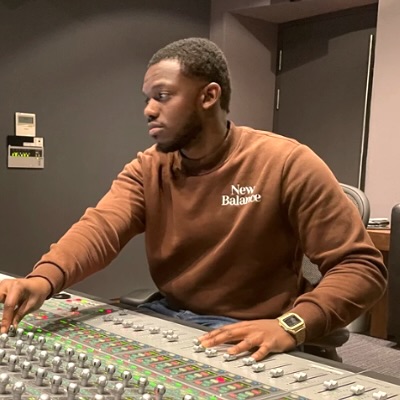
Chad Orororo
Chad is an Emmy-nominated sound designer known for his work on "The Tinder Swindler" and "The Deepest Breath." He has collaborated with Netflix, Prime Video, and Apple TV. Chad is also a BAFTA Breakthrough UK candidate and an Urban Synergy Ambassador.
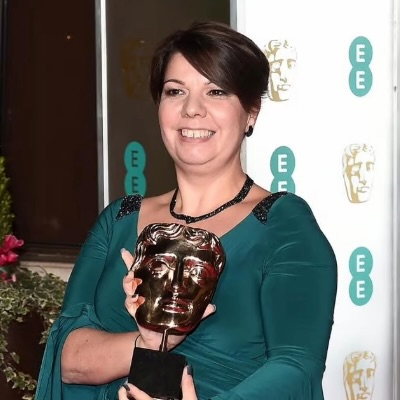
Nina Hartstone
Nina is a British Supervising Sound Editor with over 30 years of experience in film. She won an Academy Award and a BAFTA for Best Sound Editing on "Bohemian Rhapsody" (2018). Her notable projects include "Gravity" (2013), "Enola Holmes" (2020), and "Moonage Daydream" (2022).

paul James
Paul is a Creative Sound Director with over 20 years of experience in sound production. He leads Wafer Audio, a Brighton-based studio specializing in film, TV, animation, and games. His expertise spans VO recording, dialogue editing, sound effects, Foley, and final mixing in stereo and surround formats.

Justin Lenoir
Justin is an Emmy-nominated sound specialist with over 14 years of industry experience in television, film, and music. His notable roles include Supervising Sound Editor and Re-Recording Mixer for "You vs. Wild: Out Cold" (2021). He has collaborated with platforms like Netflix and Hulu.
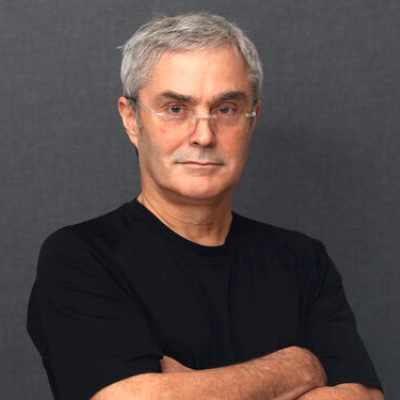
Bill Lacey
Bill is a Grammy Award-winning mastering engineer, senior sound designer, re-recording mixer, and composer with over three decades of experience in film, television, advertising, and music. A few of his notable projects include trailers for "Yellowjackets," "Your Honor," "Billions," and "The Strand."
Course CONTRIBUTORS
Harry Lightfoot
Trailer Music Composer
Top Gun: Maverick
Avengers: End Game
Black Widow
Ted Lasso
Wonder Woman
Mulan
Chris haigh
Trailer Composer
Toy Story 4
Guardians of the Galaxy Volume.3
Avengers Endgame
Lindsay Wright
Media Composer
The Crown
Law & Order
The Walk-in
Christine Hals
Media Composer & Vocalist
God of War: Ragnarök
Narvik: Hitler's First Defeat
ED COX
Trailer Music Composer
Has worked for Louder Music Productions in Hollywood
The Meg
Milton Nelson
Fast & Furious: Hobbs & Shaw
Batman: Arkham Origins
Scrubs
NOA BEasley
Re:Awaken
A Token War
Phosfi
DAN GRAHAM
Trailer Music Composer
Films for Marvel, Lucasfilm, Paramount, Universal, Warner Bros, Sony
Media composers are required to compose in a very wide range of styles. While most composers have a home style in which they can write fluently, being able to achieve the same level of fluency in a new style takes insight, skill and practice.
This analytical thinking, when focussed on their own music, helps to develop a self-critical sense of objectivity which is an important part of mastering new genres and new areas of work. In this module we first explain how some common styles work and then ask students to reproduce and extend work in a given style.
This module will provide students with:
- An understanding of the resources available to you in terms of sounds and samples that can make a huge difference to the quality of your output composition
- A guide to how to compose for action sequences and a break down of the various techniques and musical stylings included.
- A deep dive into numerous samples of music fitting the adventure genre and a scoring tutorial on how to compose for this genre.
- An examination of contemporary crime music and a tutorial on how to use various techniques to compose for this contemporary crime genre.
- A breakdown of the sci-fi musical soundscape and an introduction in how to compose for this genre.
- Understanding what musical techniques are used to make someone laugh and how to compose for the comedy genre.
Unsure about studying online?
Concerned about feeling disconnected or lacking individual attention from home? Don't worry, our online music campus connects you with fellow students, industry alumni, tutors, and professionals across the globe. There's always someone to assist, offer advice, provide encouragement, or share work opportunities.
Discover what our degree alumni have to say about their connected experience with ThinkSpace, the friends they've made, and the networks they've built.
90%
of students rate the quality of teaching as good or excellent
We offer three different schedules so you can pick which best fits around your life. It is also possible to switch between these schedules at certain points during the degree, should you find that that you have more or less time available than you anticipated. You can also pause your degree altogether if life gets in the way.
Full-time – 24 months (approx 30 hrs/wk)
Part-time – 36 months (approx 20 hrs/wk)
Part-time – 48 months (approx 15 hrs/wk)
Please note that these weekly hours are estimates based on previous years' students. It will vary from student to student, depending on your rate of work. These time estimates include every element of the course: live workshops, one-to-one tutorials, reading and watching the course materials, and time spent on assignment projects.
You will be invoiced in instalments at the start of each term. For courses lasting longer than 12 months, please budget for an annual inflation linked increase on the remaining balance of fees, based on UK RPI, capped at 8%.
STUDENT LOANS
In the UK you can apply for the following student loans to cover or contribute towards postgraduate tuition fee :
- Up to £12,858 in England. More info
- Up to £19,255 in Wales. More info
- Up to £6,500 in Northern Ireland. More info
- Up to £7,000 in Scotland. More info
PAY-AS-YOU-LEARN OPTIONS
We offer interest-free payment plans, where you can spread the cost of your course across the duration of your studies. The payment plan you are on depends on the schedule you are on. You will be required to pay a deposit upon enrolling.
ThinkSpace Masters degrees are validated and awarded by Arts University Bournemouth, and earn you the same number of academic credits as any other Masters degree in the UK or EU – 240 and 120 respectively (ECTS). While no official conversion exists, our degrees equate to approximately 48 credits in the US system, based on its criteria.
Employment support programme
HELPING YOU SECURE YOUR FIRST ROLE
92%
of students say the regular one-to-one sessions are helpful and informative
accredited by Arts University Bournemouth
Your degree is accredited and awarded by our academic partner, Arts University Bournemouth (AUB). Home to the prestigious Bournemouth Film School – whose alumni include film director Edgar Wright (Baby Driver) and screenwriter Simon Beaufoy (Slumdog Millionaire) – AUB is a public university on the south coast of England. Its history dates back to the 1880s.
AUB provide academic oversight across our degrees, which are subject to the same rigorous quality checks as degrees taught by all UK universities.
How to apply
Simply fill out a short application form and provide a few examples of your music. We will get back to you with a decision within two weeks.
"Am I good enough?"
We are frequently asked this and are glad to help. You’ll need to be competent in your DAW and be able to write music fluently and productively. It doesn’t have to be all orchestral music and it doesn’t have to be perfect by any means. We are looking for potential. You also don't need a high level of music theory.
We recommend booking a chat with one of our course advisors. As ThinkSpace Masters graduates themselves, then can take a listen to some of your work and tell you where you stand.
REGISTER FOR MORE INFORMATION
Register below to receive further information by email, and get notified about upcoming online Open Days, events and deadlines.
We recommend booking an informal audio or video chat with one of our friendly course advisors. You can discuss your goals and time commitments, and learn about your different options for subjects, schedules and financing.
They can also review some examples of your music and let you know if you're ready for a Masters. If you're not quite there yet, they'll suggest some practical next steps.

